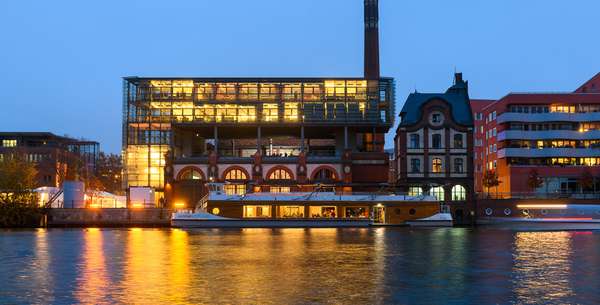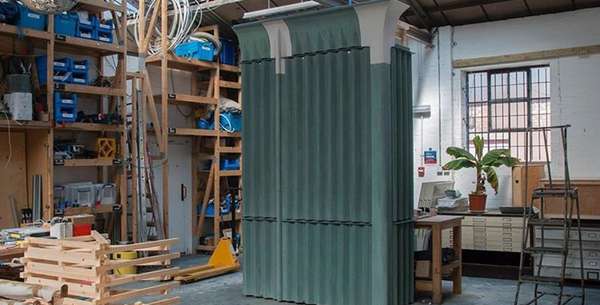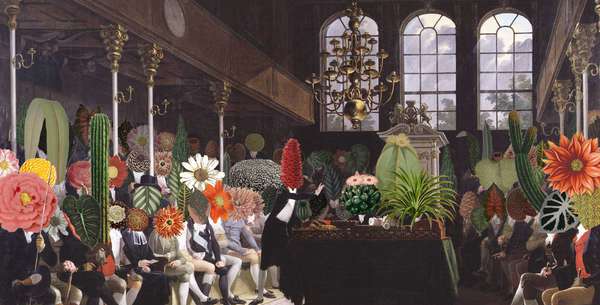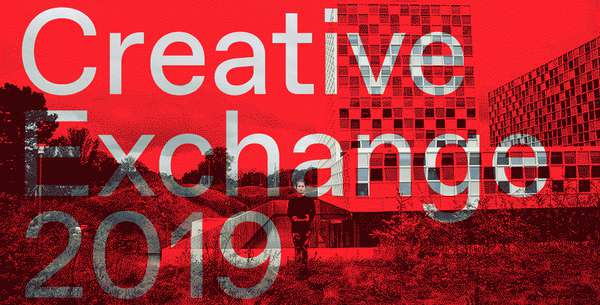Idea by
Janette Kim, Neeraj Bhatia, Antje Steinmuller and Christopher Roach
Urban Works Agency
Call for ideas 2019
A Seat at the Table
A Seat at the Table
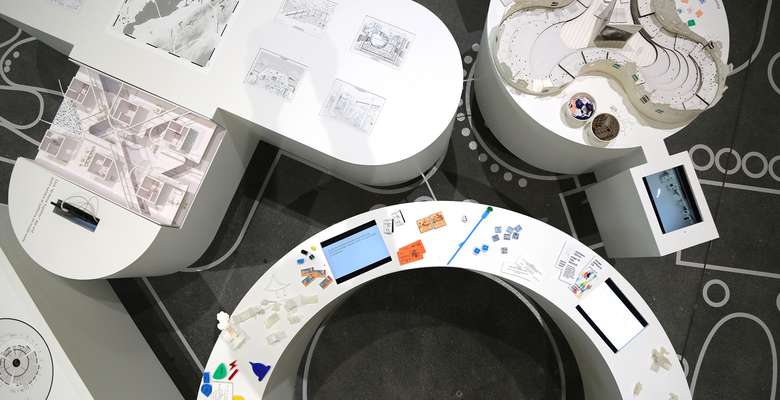
- Systemic changes
At a moment when people feel increasingly disconnected from governments and corporations at the top, we ask: Who has access to power, and how might we shift existing paradigms of governance? How might tools for power-sharing be informed by the very spaces and media shared by the public?
A Seat at the Table presents two design research projects on decision-making over two realms—the domestic household and the city. One project, called Domestic Affairs, presents illustrations and speculative designs for communes and collective living arrangements. The other, called Win Win, presents board games, alongside collected pieces and videos, that play out alternate climate change scenarios. This exhibition will be presented on a ‘tableu vivante’ of tables that have hosted negotiations of historic significance.
Note: We propose to expand on this project, currently exhibited at Yerba Buena Center for the Arts, with an emphasis on the performance of decision-making with European audiences.
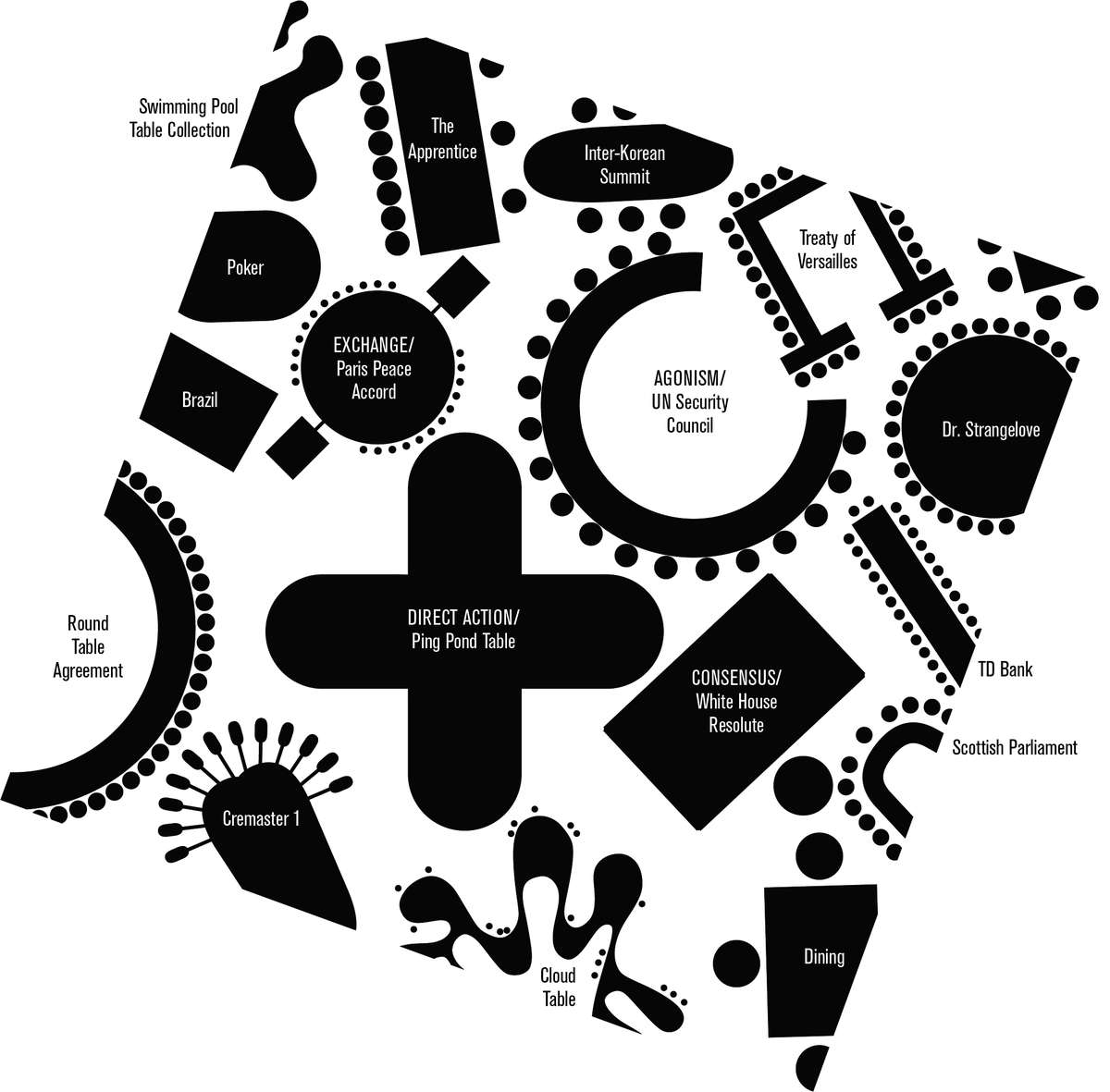
The tables reference politically influential moments and sites—the Paris Peace Accords, the United Nations Security Council, the Resolute Desk in the Oval Office, and Gabriel Orozco’s Ping Pong Table.
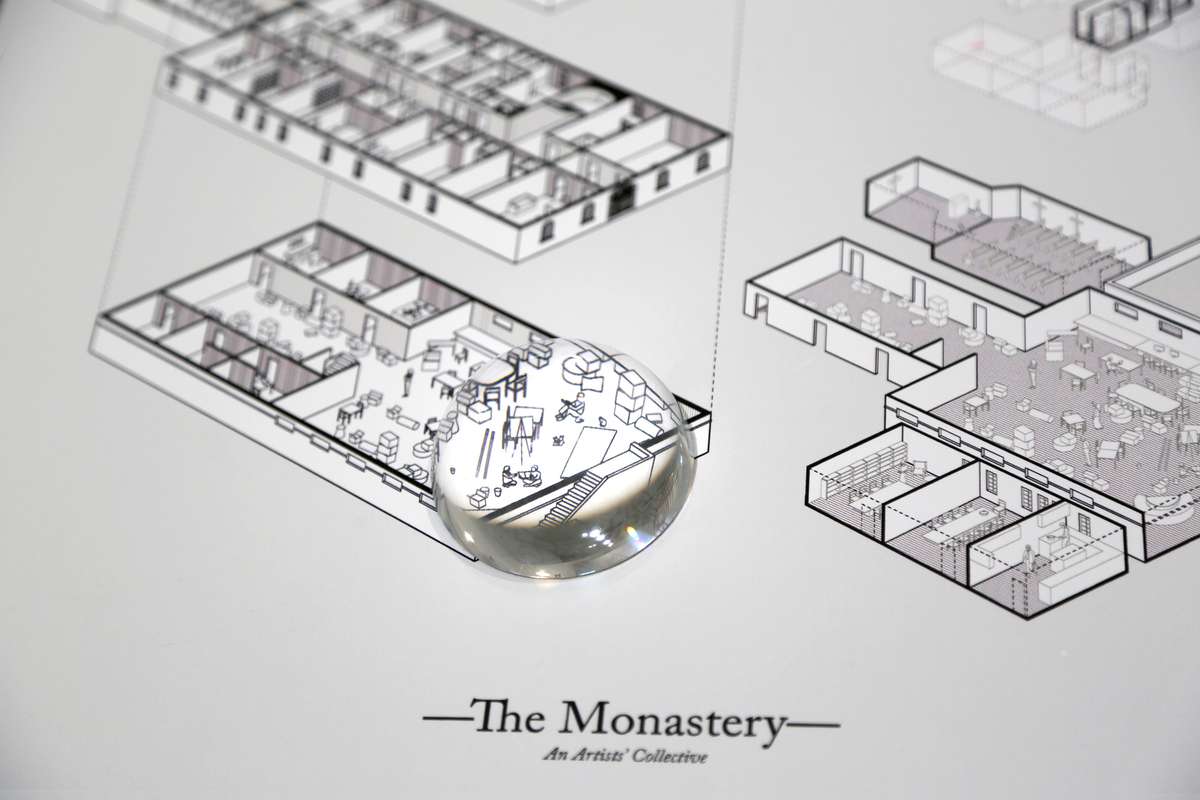
At the scale of the home, “Domestic Affairs,” set on top of the Ping Pong table, looks at the communes of San Francisco as a series of unique experiments in self-governance and contemporary collective living experiments. Analyzing these domestic spaces through their spatial and social types as well as their political ideology, the research aims to identify inherent patterns within the shifting conceptions of public and private spheres.
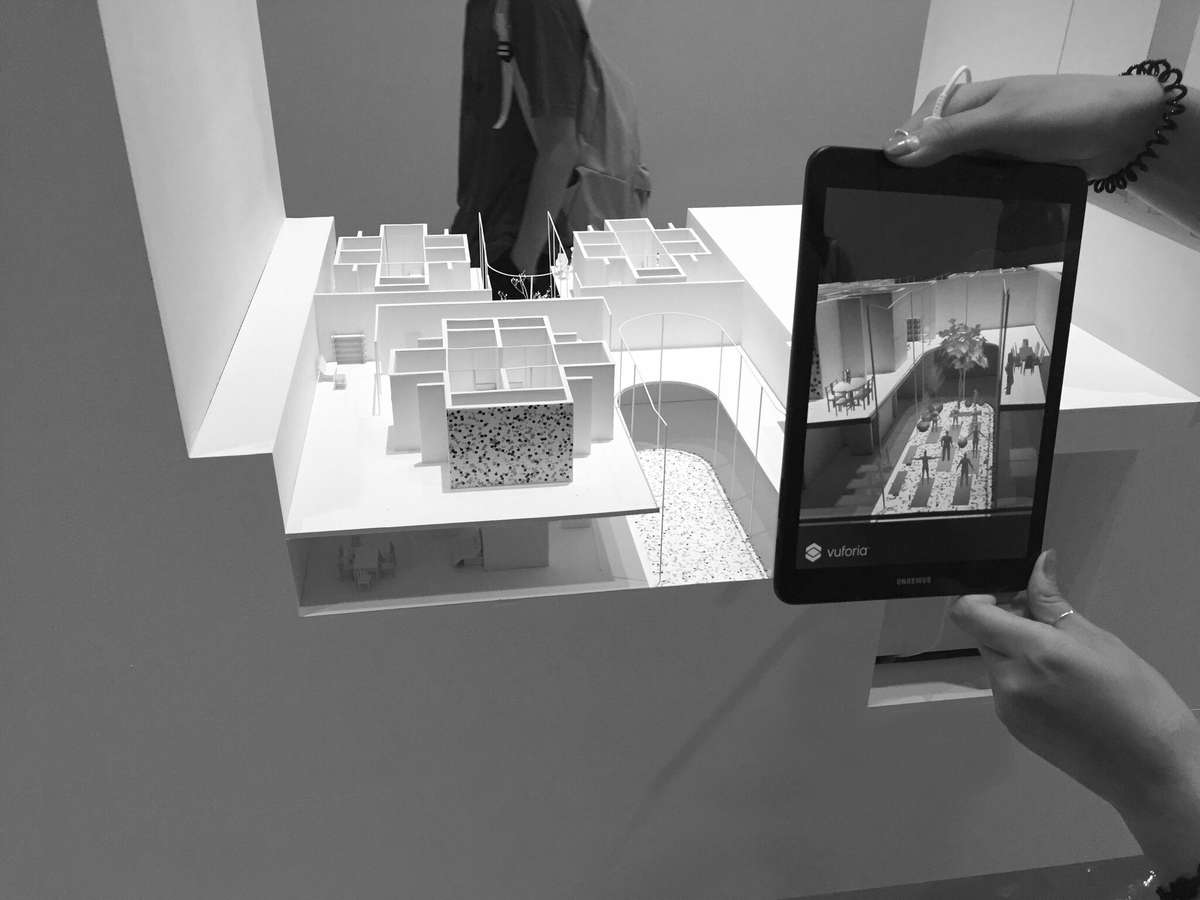
Against the backdrop of well-known communes of the 1960s and 70s, presented in the exhibition are a series of case studies of communal living—from communes to co-living to hacker hostels—as well as projective design proposals represented through physical models with an augmented reality (AR) interface.
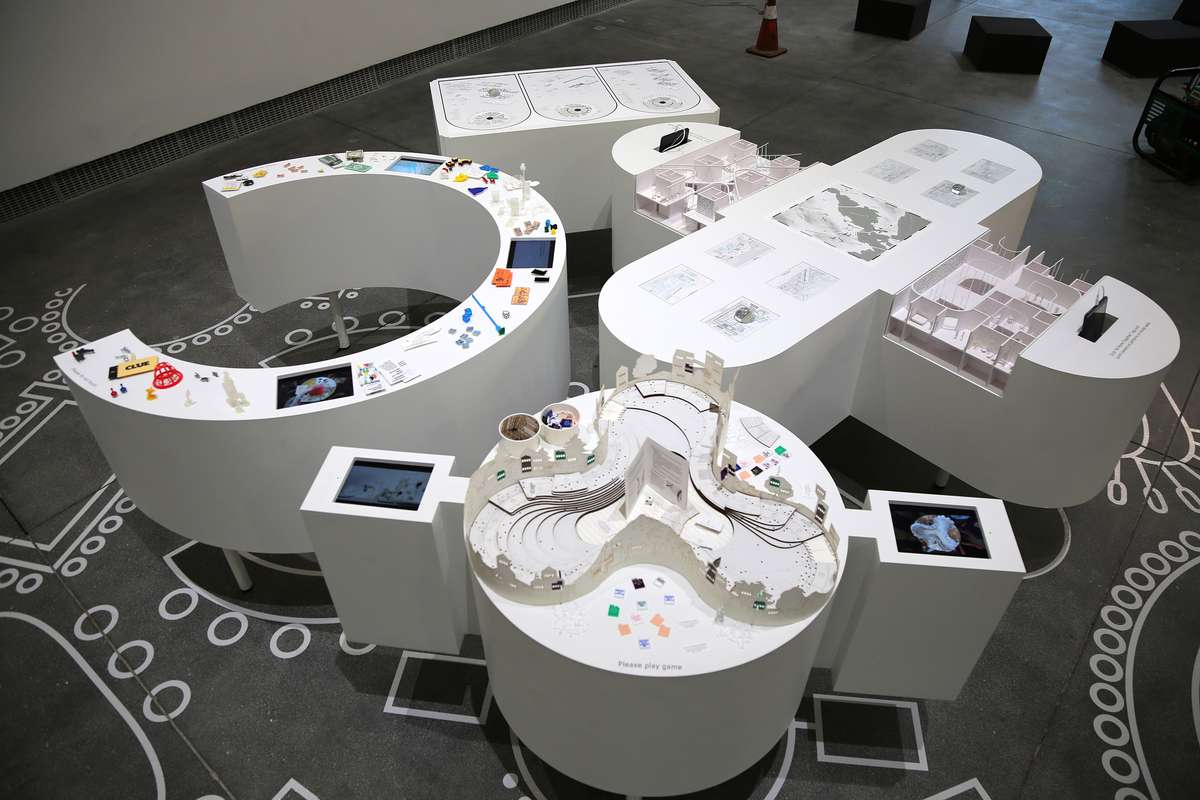
At the scale of the city, “Win-Win” is a series of four board games, displayed on reproductions of the United Nations Security Council and Paris Peace Accord Tables, that play out climate change scenarios. By designing interactions among players, objectives and resources, these games model the political and spatial implications of innovative financial and legal strategies. In turn, they act as economic and architectural models to serve as a new kind of decision-making tool for our contemporary r
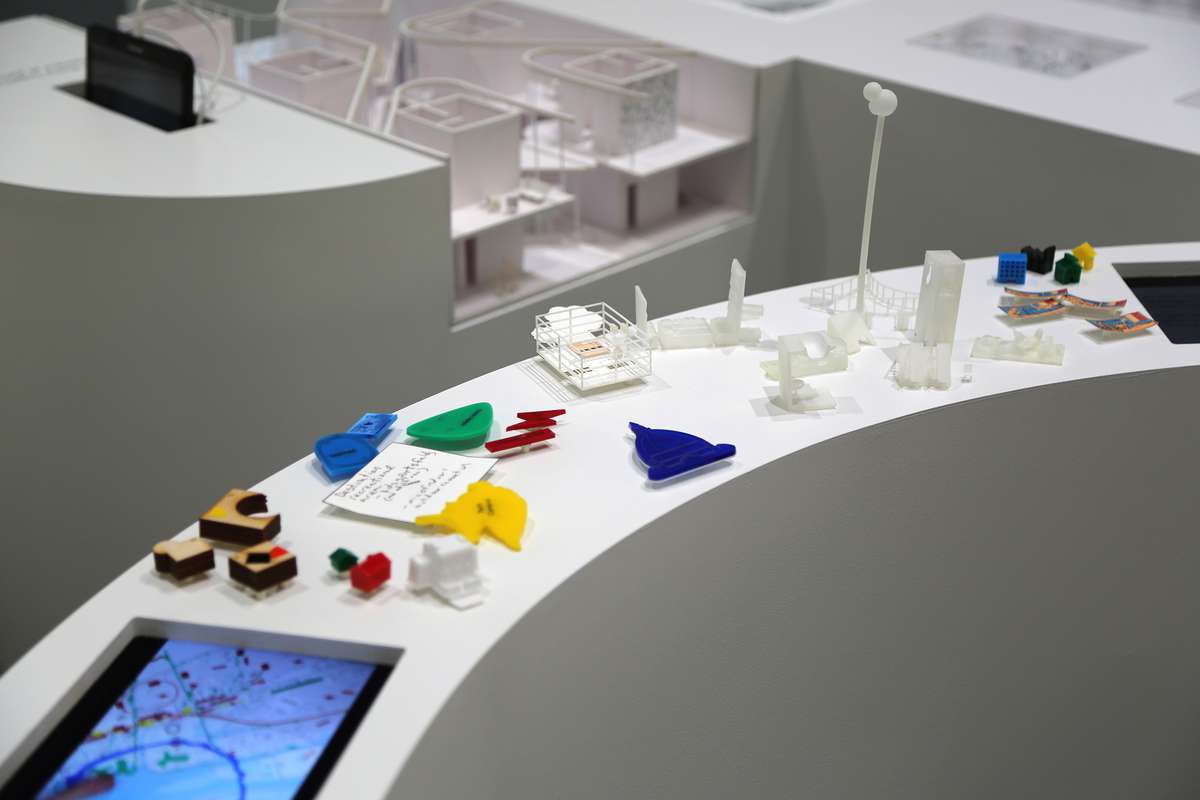
Presented in the exhibition is one of the board games, called ‘Bartertown’, which is unpacked through a video of its use [see video link above] and an array of game parts that suggest its potential misuse. Parts include player tokens, currency, chance devices, assets, and rules both from common games and speculative ones we will create and test.
A Seat at the Table
A Seat at the Table

- Systemic changes
At a moment when people feel increasingly disconnected from governments and corporations at the top, we ask: Who has access to power, and how might we shift existing paradigms of governance? How might tools for power-sharing be informed by the very spaces and media shared by the public?
A Seat at the Table presents two design research projects on decision-making over two realms—the domestic household and the city. One project, called Domestic Affairs, presents illustrations and speculative designs for communes and collective living arrangements. The other, called Win Win, presents board games, alongside collected pieces and videos, that play out alternate climate change scenarios. This exhibition will be presented on a ‘tableu vivante’ of tables that have hosted negotiations of historic significance.
Note: We propose to expand on this project, currently exhibited at Yerba Buena Center for the Arts, with an emphasis on the performance of decision-making with European audiences.
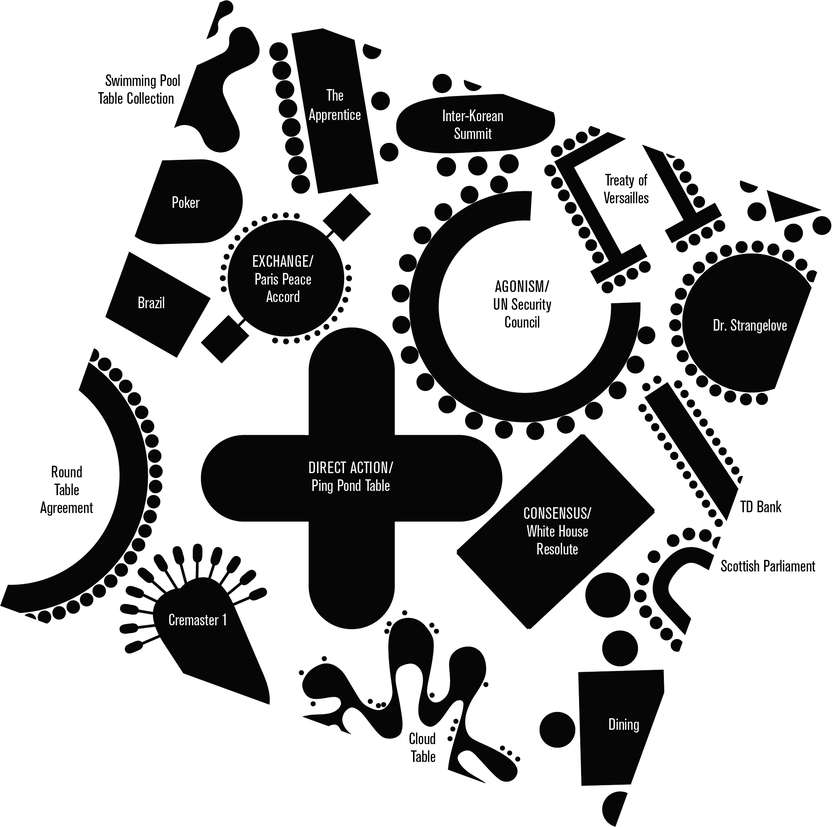
The tables reference politically influential moments and sites—the Paris Peace Accords, the United Nations Security Council, the Resolute Desk in the Oval Office, and Gabriel Orozco’s Ping Pong Table.
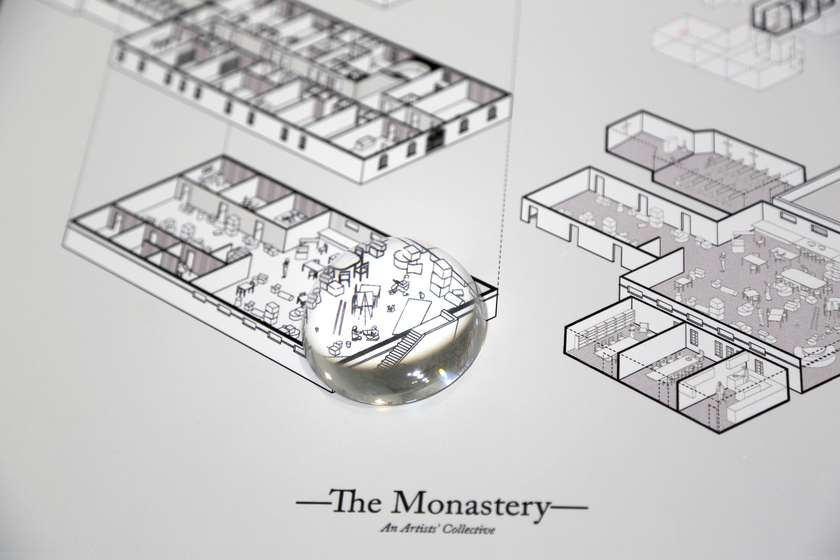
At the scale of the home, “Domestic Affairs,” set on top of the Ping Pong table, looks at the communes of San Francisco as a series of unique experiments in self-governance and contemporary collective living experiments. Analyzing these domestic spaces through their spatial and social types as well as their political ideology, the research aims to identify inherent patterns within the shifting conceptions of public and private spheres.
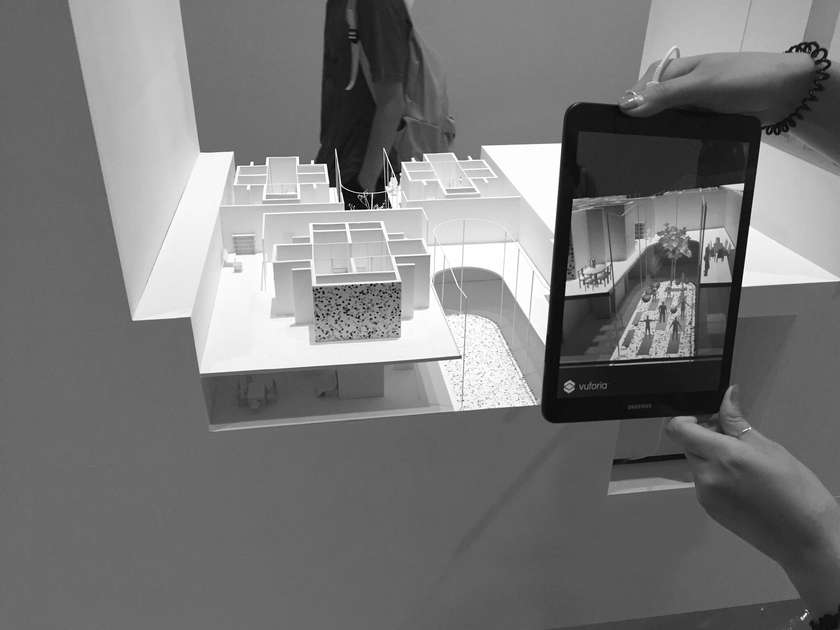
Against the backdrop of well-known communes of the 1960s and 70s, presented in the exhibition are a series of case studies of communal living—from communes to co-living to hacker hostels—as well as projective design proposals represented through physical models with an augmented reality (AR) interface.
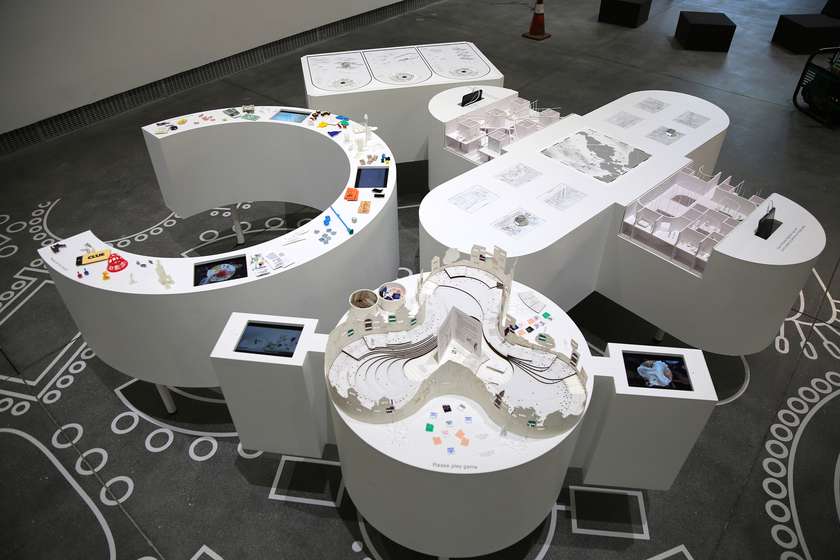
At the scale of the city, “Win-Win” is a series of four board games, displayed on reproductions of the United Nations Security Council and Paris Peace Accord Tables, that play out climate change scenarios. By designing interactions among players, objectives and resources, these games model the political and spatial implications of innovative financial and legal strategies. In turn, they act as economic and architectural models to serve as a new kind of decision-making tool for our contemporary r
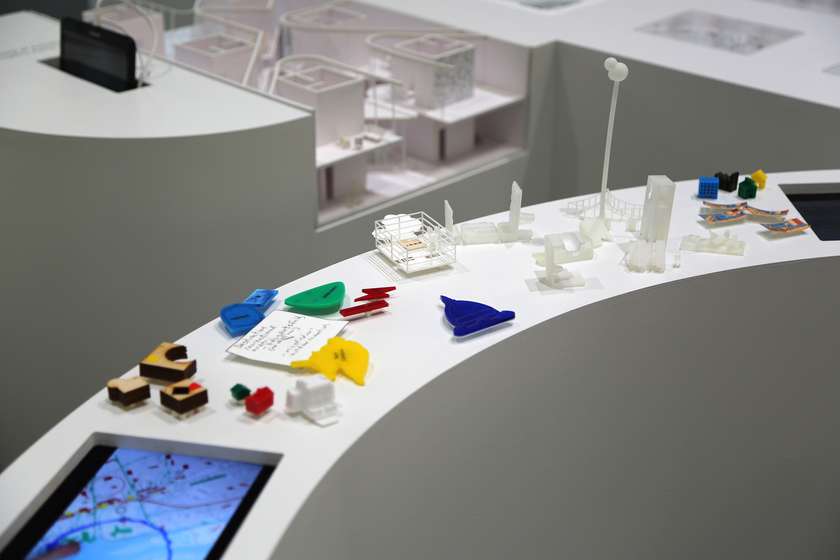
Presented in the exhibition is one of the board games, called ‘Bartertown’, which is unpacked through a video of its use [see video link above] and an array of game parts that suggest its potential misuse. Parts include player tokens, currency, chance devices, assets, and rules both from common games and speculative ones we will create and test.
